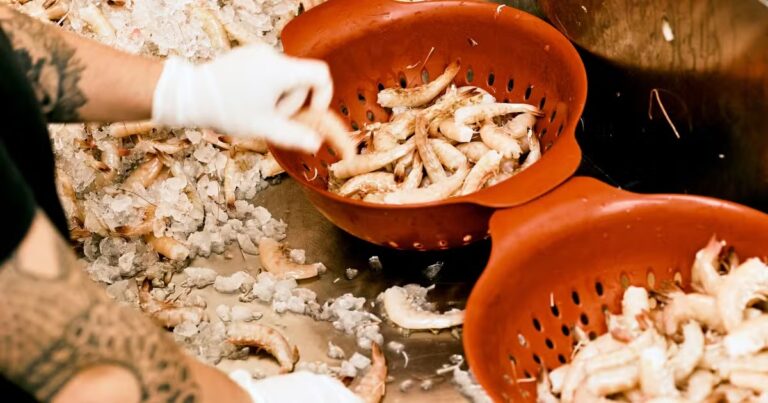In an unexpected turn of events, shrimp fishermen in Florida and Louisiana are finding new hope in the trade war initiated by former President Donald Trump. After years of battling against the influx of imported farmed shrimp, often sold at a fraction of the price, many are now cautiously optimistic that the new trade measures might just give their struggling industry the boost it desperately needs.
A New Wave of Optimism for Shrimp Fishermen
Frank Parker, a shrimp fisherman from Mississippi, is one of those who has started to see the silver lining. Back in December, he made a significant investment in a larger shrimp boat, one that would allow him to fish in deeper waters for extended periods. While the boat’s purchase was initially driven by the opportunity to expand his business, what really convinced Parker to move forward was the promise made by the Trump administration to impose tariffs on imported shrimp.
“I felt like I could finally see the light at the end of the tunnel,” Parker said, recalling his reaction when Trump followed through on his pledge in April to impose tariffs on nearly all global imports. For Parker, the news was a welcome relief after years of economic hardship.
A Struggling Industry Finds Hope
The shrimping industry, especially in the Gulf of Mexico, has faced its fair share of challenges in recent years. From natural disasters to environmental damage caused by human activity, and not to mention the soaring fuel prices, it’s been a tough ride for shrimpers like Parker. For decades, the market has been flooded with cheaper imported shrimp, which often put local businesses in a difficult position.
Parker’s family has been in the shrimping business since 1842, making it a generational way of life. Despite the challenges, he and other shrimp fishermen have continued to hold on. The promise of tariffs, however, has given them renewed hope.
The move to impose tariffs was not just about protecting local businesses; it was a way to level the playing field against cheaper imported shrimp that, according to local fishermen, have long undermined their ability to compete. With the trade measures in place, many fishermen feel that the market will finally shift in their favor, allowing them to get a fairer price for their product.
A Shifting Market: What’s Next for the Shrimping Industry?
While many are hopeful, the reality is still uncertain. The impact of the tariffs is still unfolding, and the long-term effects on both the local shrimping industry and the global market remain to be seen. Nevertheless, for the first time in years, fishermen like Frank Parker feel that they are not just fighting to survive—they’re fighting for a future.
With the promise of better prices and a more level playing field, American shrimpers are now more invested in their industry than ever. It’s a new chapter in a long history of American shrimping, one that’s filled with the hope that these trade measures might just bring the industry back to life.
As the trade war continues to impact various industries, it’s clear that, for some, it could be the key to revitalizing a sector that has struggled for far too long. For the shrimp fishermen of Florida, Louisiana, and Mississippi, the promise of tariffs is more than just a political maneuver—it’s a chance to reclaim what was once theirs.




